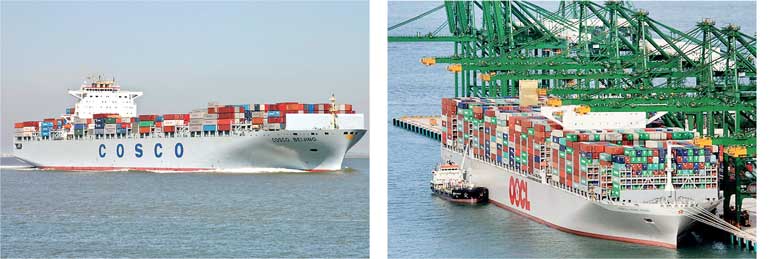Wednesday Feb 18, 2026
Wednesday Feb 18, 2026
Monday, 18 September 2017 10:28 - - {{hitsCtrl.values.hits}}
 China’s State owned Assets Supervision and Administration Commission (SASAC) has approved the bid from COSCO Shipping Holdings Co to take over Orient Overseas (International) Ltd.
China’s State owned Assets Supervision and Administration Commission (SASAC) has approved the bid from COSCO Shipping Holdings Co to take over Orient Overseas (International) Ltd.
Under the offer launched in July, COSCO Shipping Holdings and Shanghai International Port Group (SIPG) seek to acquire all issued OOIL shares at an offer price of HKD 78.67 ($ 10.07) in cash, totalling in $ 6.3 billion.
On completion, assuming all OOIL shareholders tender their shares, COSCO would hold 90.1%, while SIPG would hold 9.9% of OOIL.
The combined entity, if the merger is completed, would become the world’s third largest container carrier, according to shipping consultancy Drewry.
Specifically, the duo would have a combined fleet of 400 vessels operated over a much-expanded network, with the capacity exceeding 2.9 million TEUs including orderbook, pushing CMA CGM from its spot.
The conclusion of the deal is dependent on the necessary regulatory approvals as well as approval from COSCO Shipping Holdings shareholders.
However, based on the latest update none of the pre-conditions for the completion of the offer have been met, and work on their fulfilment continues.
To that end, COSCO Shipping Holding is set to hold an extraordinary general meeting on 16 October.
COSCO said earlier that once and, if the acquisition is completed, COSCO Shipping and OOIL, parent of OOCL, would continue to operate under their respective brands, adding that they would continue to work together as members of the Ocean Alliance.
The merger is being pursued as OOCL welcomes its biggest containerships into the fleet, bound to serve the Asia-Europe trade lane.
Just last week, the Hong Kong-based carrier named its third 21K TEU+ size containership, the OOCL Japan.
With three more ships from the batch to go, OOCL said that the rolling out of the sea giants comes amid stronger rebound of the container shipping market, characterised by significant volume growth, increased liftings, and more sustainable rate levels.